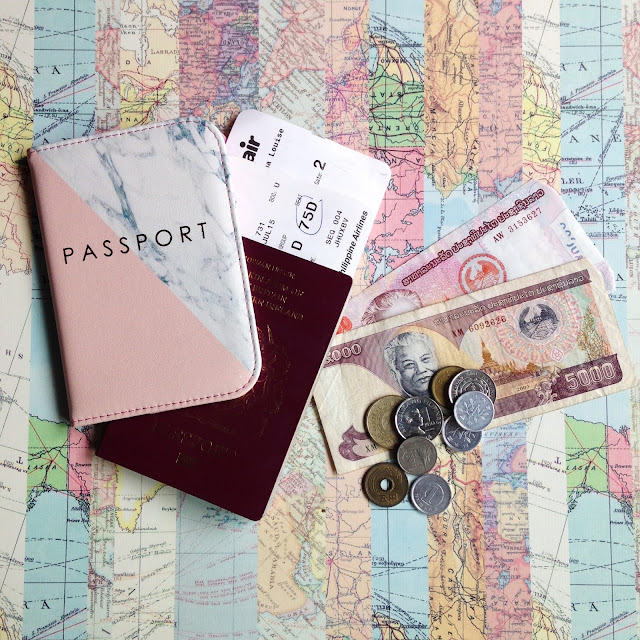Scrolling through my Twitter and Instagram feeds I’ll often see that little hashtag #ad or #sp sprinkled across the accounts of various bloggers or ‘influencers’ that I follow on social media. I have no issues with sponsored content in itself - I fully understand the power of influencer marketing and I’ve definitely bought a product just because I’ve seen a tweet/read a blog post about it or seen a great collab. Plus, bloggers have got bills to pay too.
Sometimes I might see a sponsored post from a blogger that I don’t necessarily agree with or buy in to. Maybe it’s with a gambling company, a brand with a bad reputation or just a cut and paste campaign where 10 bloggers all have the same content. I might not agree with it, but not much harm can come from it. Maybe a reader buys a £20 product that isn’t actually that great. No big deal. I once bought a makeup brush because a beauty blogger recommended it, but it turned out that it was actually a bit shit and shed everywhere. It obviously didn’t have a big impact on my life. I just moved on and bought a better brush. No big deal.
What I do take issue with, however, is when bloggers start to promote companies that are masquerading in the cover of the ‘wellness’ movement, but are dishing out medical or dietary advice with no qualifications or scientific backing. And they’re getting paid for it.
The problem with the clean eating and 'wellness' trend
It all seems to have grown from the whole #cleaneating movement. Over the past few years it seemed like everyone and their mum were peddling recipes from the likes of Deliciously Ella or the Hemsley and Hemsley sisters and cutting out sugar, or gluten, or anything ‘processed’ (you should see the process cashews go through just for us to be able to eat them…) for no other reason than some pretty skinny white girl(s) said it would make them ‘feel better’. And how on earth do you measure that?
I’m all for cutting back on the lattes and pizzas and throwing in more fruit and vegetables into our diets, but the clean eating trend is just so constrictive, judgemental and fucking smug. Fruit and vegetables are ‘clean and pure’, and anything else by default is ‘dirty, disgusting’ and ‘ew, how could you put that into your body?’. I just want a bloody Domino’s pizza now and again, ok, and that’s FINE. I also like avocado and poached egg on wholemeal bread. It’s called balance.
Thankfully there has since been a bit of a backlash against this militant approach to eating. Grace Victory’s BBC3 documentary ‘Clean Eating’s Dirty Secrets’ helped to shine a light on some of the crap pseudoscience these ‘nutritionists’ were peddling, including the ridiculous idea that milk draws calcium out of your bones....Hey, did you know that you only need £50 in your bank account and an internet connection to become a ‘certified nutritionist?’ The Angry Chef is also a brilliant blog that defends the positives of ‘convenience food’ and helps to debunk the a lot of pseudoscience that gets peddled by food celebs. I would highly recommend giving a few posts a read if you feel the same. Not Plant Based is another great website that has recently sprung up as a reaction to the clean eating trend.
When did we stop trusting experts and start listening to unqualified people on the internet?
Despite a bit of a backpedal on this trend, I’m still seeing blog posts and sponsored Instagram pictures promoting the services of these ‘nutritionists’ combined with some sketchy alternative medicine, all cloaked in the notoriously vague yet trendy term of ‘wellness’. They all go a little something like this: “I just want you to feel as great as I do, since I received this service for free and I’m getting a % on all the sales that they make from this link, but I just want you to feel great. This person is neither a qualified doctor nor a dietician, and it’s probably actually quite dangerous for you to follow their advice, but look how pretty and skinny I look in this great picture of me, you could look like this too! [Link to expensive service of which I’m getting a percentage]”
Despite a bit of a backpedal on this trend, I’m still seeing blog posts and sponsored Instagram pictures promoting the services of these ‘nutritionists’ combined with some sketchy alternative medicine, all cloaked in the notoriously vague yet trendy term of ‘wellness’. They all go a little something like this: “I just want you to feel as great as I do, since I received this service for free and I’m getting a % on all the sales that they make from this link, but I just want you to feel great. This person is neither a qualified doctor nor a dietician, and it’s probably actually quite dangerous for you to follow their advice, but look how pretty and skinny I look in this great picture of me, you could look like this too! [Link to expensive service of which I’m getting a percentage]”
Scrolling through the comments on these posts is where things start to get really worrying. There are comments from people who have long term health issues, who feel let down by the NHS, or can’t quite put their finger on what’s causing their wide range of symptoms. These are people who have tried everything, and are at the end of their tether, and then someone comes along who they feel like they know and trust offering them a solution. And sure, it might be an expensive one, but they’ll try anything to just feel a little better. And this is where the problem lies.
Online influencers are making money out of people's desperation
These highly influential bloggers are making money from people who are desperate for any solution to their health problems and trust their advice.They’re not advertising a dress that you maybe can’t afford, they’re advertising a very expensive ‘health’ service that does. not. Work. The only evidence they provide is purely anecdotal and based on their personal experience. And that’s not how science works. Thankfully some of this sponsored content does mention visiting a GP first, but it’s added as an afterthought and after a list of disparaging comments made about western medicine.
Recently, a 47-year-old woman was taken to intensive care after taking a cocktail of herbs and alternative remedies which all of these 'detox' teas and juices are full of. How scary is that? She didn't just have the shits for 3 days, she ended up in intensive care.
There’s a difference between your well meaning friend recommending you cut out dairy because she heard that it might help your skin condition, and a blogger suggesting that you go and follow the advice of someone who did an online course in Chinese medicine, who isn’t medically qualified and charges £40-100 per complementary product. And that’s because they’ll get paid for each person who clicks on the link to their website.
Not everyone is going to do their own research about a company that promises a magic solution to a health condition that they’ve been struggling with. This responsibility should be with the bloggers promoting these companies. I don’t care if it’s been declared as sponsored content, promoting this pseudoscience is irresponsible and dangerous. And deleting people’s comments telling you so is even worse.








Post a Comment
Let me know what you think!